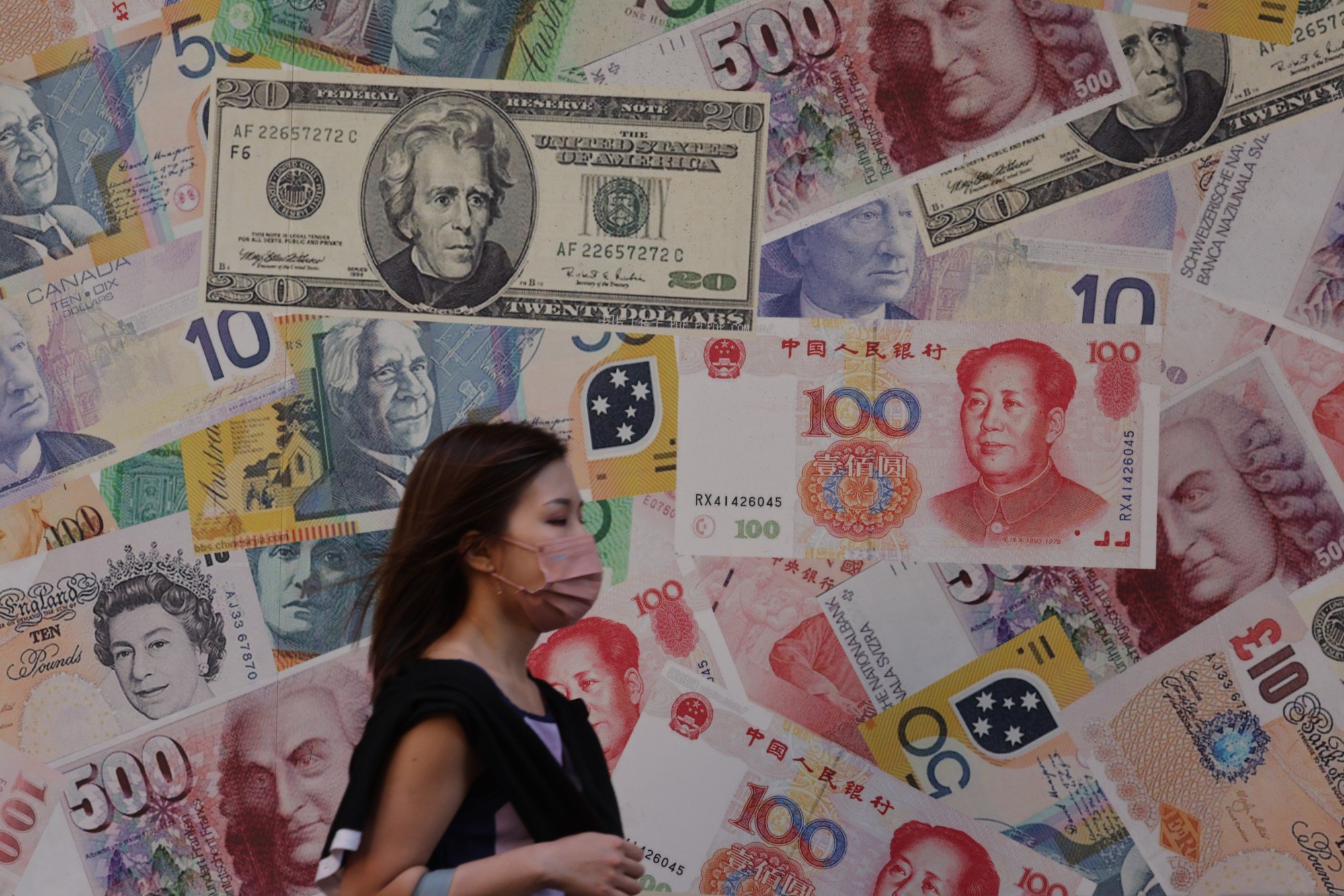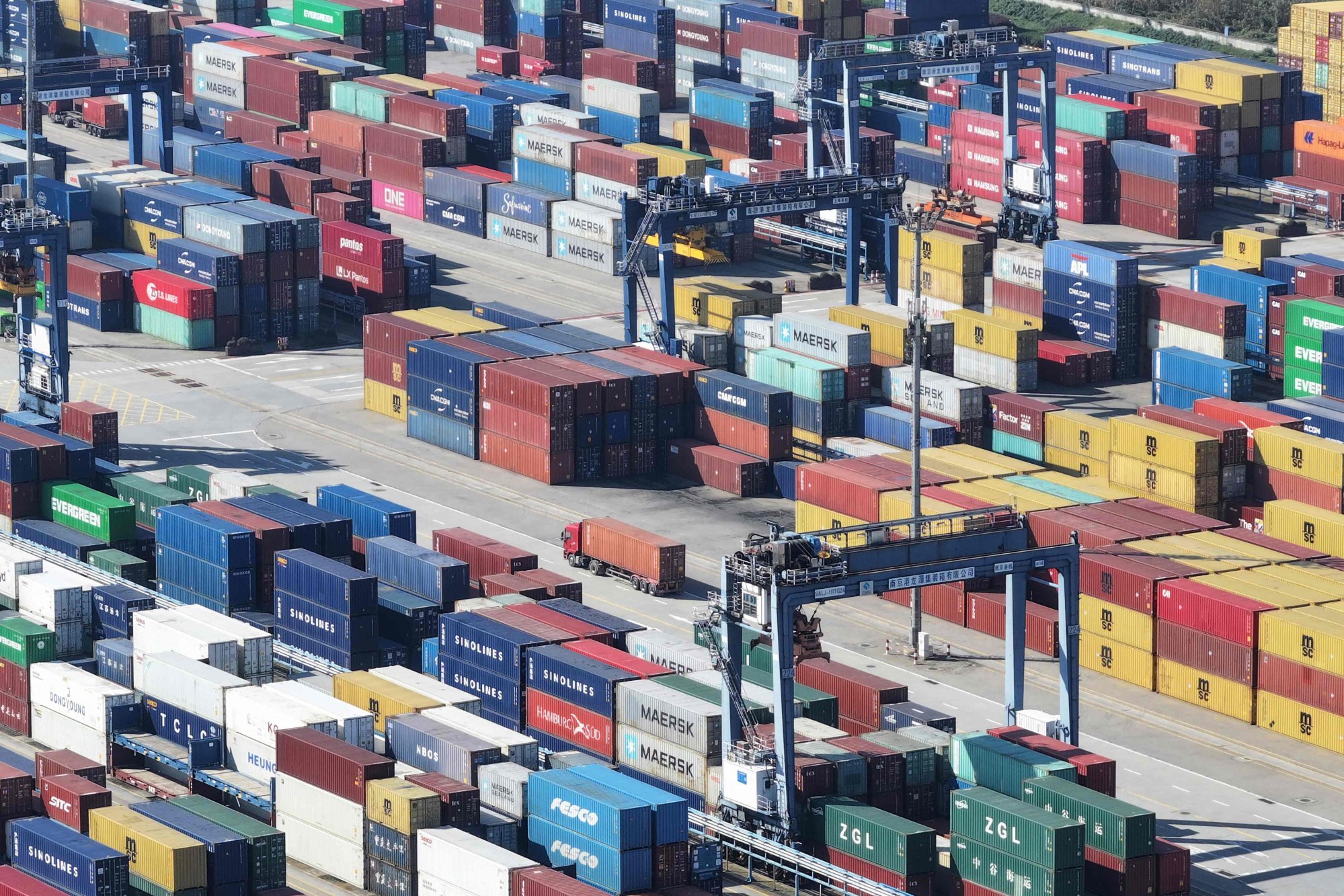
So-called currency wars – as seen through Western eyes – used to be about Japan seeking to devalue the yen, South Korea the won and, more recently, China the yuan in order to gain export competitiveness. But now the term implies something more serious, or even sinister.
The emergence of central bank digital currencies (CBDCs), which has happened faster and made greater inroads than many people realise, threatens to create currency blocs alongside the fragmentation of global trade and investment that is already underway.
The IMF says CBDCs could improve payments systems among other things, if “appropriately designed”. If not, they could “pose risks”. And those risks are becoming more apparent, as multiple jurisdiction push to launch digital currencies.
Central banks appear to be driven by the fear that if they do not launch digital currencies, cryptocurrencies will fill a perceived need for money that is independent of national governments. But by the same token, who will bail out CBDCs when things go wrong?
By the end of this year, about 130 central banks representing 98 per cent of the global economy will have initiated programmes to develop digital currencies, according to the Atlantic Council, a Washington-headquartered think tank.
Current leaders in CBDC development and experimentation include the euro area, the United Kingdom, Sweden, Singapore, China and several developing countries, while the United States remains conspicuously absent from this field.
Instead, the US is leaning more towards issuing so-called stablecoins, a type of cryptocurrency whose value is pegged to another asset. A bill before Congress seeks to foster private stablecoin issuance, in effect creating an alternative to a digital dollar because the vast majority of stablecoins (99 per cent) are backed by the US dollar.

A pedestrian walks past the bank notes of different currencies displayed outside a currency exchange shop at Sheung Wan in October 2022. About 130 central banks have initiated programmes to develop digital currencies. Photo: Yik Yeung -man
Ominously, the Atlantic Council suggests the most likely near-term scenario for digital currency development is that clusters of national CBDCs become interoperable only among friendly countries, but are ring-fenced against outside state and non-state actors. Generally, it adds, “fragmentation is the prevailing policy trajectory”.
Such limited interoperability would add friction and inefficiency to global payment systems, which in turn would impose costs on businesses and consumers.
It is bad enough from an economic perspective that world trade should be disrupted by tariff wars and other restrictions. It is worse that even in the realm of digital currency creation, the world appears to be breaking into blocs too, instead of moving towards a global currency.
The chief impetus for advanced economies’ retreat to protectionism has come from the successive US administrations of Donald Trump and Joe Biden, and now the great irony is that America might end up being the chief loser.
As Hung Tran and Barbara C. Matthews, non-resident senior fellows at the Atlantic Council, note, if the world fragments into currency blocs, there is “a significant risk that the US dollar will experience a gradual diminution of its current prominent role”. Clusters of interoperable CBDCs would reinforce the growing use of local currencies in bilateral and eventually plurilateral cross-border payments.
It is true that the US dollar remains dominant, accounting for 85 per cent of the US$7.5 trillion in global foreign exchange daily trading turnover. However, greater interoperability among national CBDCs will reduce reliance on the dollar as an intermediary currency in executing exchanges between pairs of currencies.
While trade blocs are built around global centres of demand such as the US and China, digital currency use will be shaped by the jurisdiction with the most developed rules. At present, the European Union is leading this race, ahead of both China and the US.
Lower demand for the dollar in foreign exchange trading could trigger parallel decreases in central bank holdings, hastening a long-term decline in reliance on the dollar as a reserve currency. In 2001, the US dollar accounted for about 70 per cent of global reserves held by central banks, but by 2020, its share had fallen to 59 per cent.
While the shift away from the greenback has not led to an increase in any single alternative currency, it has benefited a range of smaller currencies. As importers shift to local digital currencies that are interoperable with other non-dollar digital currencies, central banks will have less need to hold US dollars to cover forex trading.

Shipping containers at Nanjing port in China’s eastern Jiangsu province on November 13. Importers adopting the use of countries’ digital currencies could mean central banks’ need to hold US dollars will decline. Photo: AFP
While the US drags its feet on developing a digital dollar, China and the European Union are among the major powers actively embracing CBDCs.
As the Atlantic Council observes: “Failure to initiate a digital dollar strategy domestically creates a significant risk that the United States will be missing in action regarding cross-border payments interoperability.”
A cautious Federal Reserve is resisting calls for it to issue a digital US dollar. At the same time, many members of the US Congress, especially Republicans in the House of Representatives, remain hostile to CBDC issuance. Their concerns centre on the perceived risk that private financial transactions could become the subject of federal government monitoring and that the acquired information could be used for political purposes.
The advent of central bank digital currencies may be a positive development. It could improve financial inclusion, according to the International Monetary Fund. But if CBDCs are introduced in the current global context of political and economic fragmentation, they have the potential to be a force for good or evil. Any system can be as good or bad as the people who devise it.
Anthony Rowley is a veteran journalist specialising in Asian economic and financial affairs
News Related-
AI chip boom fuels MediaTek’s 40% rally, beating Qualcomm and peers
-
Singtel is next S’pore stock to be traded on Thailand bourse under depository receipt linkage scheme
-
Chinese Swimming Club renews lease of Amber Road site for another 30 years
-
Cyber Monday forecast boosted after record online holiday sales
-
WealthBT Podcast: Powering up philanthropy for climate goals
-
US stocks pull back after weeks of gains
-
Former Binance CEO Zhao Changpeng must stay in US for now, judge says
-
Sports Illustrated scrubs AI-generated content after being called out for using deep fakes
-
Climate finance: UK-based standard setter VCMI’s introduction of flexibility to carbon credits market could unleash demand, much-needed investment
-
Fast-fashion giant Shein could be next blockbuster IPO after filing to go public: report
-
New York's cannabis board votes to settle lawsuits that have stalled legal dispensaries
-
CK Hutchison-backed HutchMed eyes global expansion after FDA approval for novel cancer drug
-
Cyber Monday sales set to reach $12.4 billion thanks to deal-hunters
-
Texas' new power grid problem
